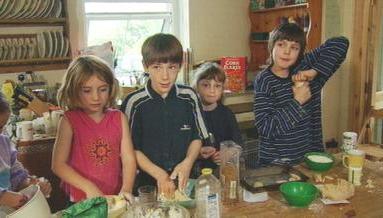Aims of education in SunWALK:
“I have come strongly to believe that it is the cultivation of imagination which should be the chief aim of education, and in which our present systems of education most conspicuously fail, where they do fail.”
Warnock, Mary, (1976), Imagination, London: Faber & Faber Ltd.
The aims of education, via the SunWALK model, are seen as:
To develop ‘technical’ learning in a human, moral, spiritualizing context. By technical is meant everything from functional literacy to an MSc in engineering. The triad we suggest is caring, creative and critical, (the I, WE and IT voices, plus the interpersonal/social) as opposed to the intellectual, moral and spiritual suggested by Elliott in the passage that follows;
“If we construe education as a process of induction into knowledge that is related to the things which matter for living then its intrinsic goods can be classified according to three of its interrelated dimensions of personal development: the intellectual, moral and spiritual. The intellectual goods consist of the development of the powers of human understanding in relation to the problems of living. The spiritual goods consist of the development of wisdom through the exercise of these intellectual powers, and the moral goods consist of those virtues or attitudes which are necessary conditions for developing the powers of the understanding and discovering solutions to the fundamental problems of living.”
John Elliott, p.148, Action Research for Educational Change, OPUS, Buckingham, UK, 1992
SunWALK is a process to develop Wise and Willing Action through Loving and Knowing, in community and in the light of higher-order values. Hart (2001) follows Lawson in seeing the promotion of wisdom as the task of education;
Lawson (1961, vii) concludes that, “wisdom lies in human action which possesses both intellectual and ethical orientation; and the promotion of such wisdom is the task of education.”
The full paper, Hart, Tobin, (2001), Teaching for Wisdom, in Encounter: Education for Meaning and Social Justice Vol. 14 (2): 3-16, is available at; http://www.great-ideas.org
The aim of education is the making of persons. The purpose of the educator should be to guide the developing nature of the child to that unique perfection which makes the self complete in its inward life. Other aims may seem of more immediate purpose or practical importance – education for livelihood, education for leisure, education for service or for citizenship – but these must always remain secondary and subordinate to the making of persons, with their unique freedom, responsibility and immortality. Beck in Aims in Education p 122
SEE: What’s Wrong with Education?; Wisdom, Caring Creativity and Criticality
 http://www.teachers.tv/video/22401
http://www.teachers.tv/video/22401
